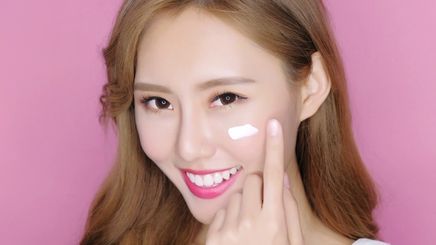
Hydration vs. moisturization: they sound like the same thing, but are fundamentally different. Like Mary Kate and Ashley, they live in the same universe, they look alike, and sometimes may even be dressed alike, but are actually more complimentary.
In fact, they’re better together. While hydration is more about replenishing the skin with water, moisturization is about nourishing it with oils. All skin types will benefit from thus duo — from dry to oily, to acne-prone — because hydrated and moisturized skin essentially is better equipped at protecting itself from irritants and healing acne.
Let’s deep-dive into these differences, shall we? Here are the most asked questions about hydration vs. moisturization.
Hydration vs Moisturization: What's the Difference?
The main difference between hydration and moisturization is the problem that each one addresses. When your skin needs to be moisturized, this means it’s lacking in oil and can be classified as dry skin. When your skin needs to be hydrated, this means it’s lacking in water and is dehydrated.
Hydration in terms of skincare is taking moisture from the air and plumping up skin cells with water. Hydrating products usually have humectant properties, which draw moisture from the environment into the skin. Some of these water-loving compounds include , glycerin, sorbitol, urea, and propylene glycol.
Moisturization is adding a layer of product or barrier to lock all this hydration in. These two important steps work hand-in-hand in improving the skin’s ability to absorb treatments such as and creams, as well as making it look instantly healthy and glowing, like we all want it. Examples of moisturizers, on the other hand, include shea butter, mineral oil, and lanolin, which lock moisture in. Together, hydrators and moisturizers make the perfect duo, protecting the skin from outside irritants, relieving it from dryness and dehydration, and making it soft and supple.
Why Can’t I Have Just One or the Other?
There are definitely benefits to having both steps in your skincare regimen, especially if you have dry skin. The effects just won’t be that long-lasting if you do just one. When you use a hydrator like hyaluronic acid on very dry skin, it can draw moisture from deep within the skin and make you more dehydrated.
If you hydrate without moisturizing, any water that is drawn from the air to your skin would eventually escape. If you moisturize without hydrating, you’d still be dehydrated under the moisturizing, and your skin wouldn’t have that coveted plump and bouncy texture. It is best for these two steps to work in tandem for best results.
How Do I Know if a Product is a Hydrator or a Moisturizer?
A hydrator draws moisture to the skin using humectants. Products with hyaluronic acid, such as and with 4D Hyaluronic Acid Complex, bond water from the environment to the skin, as well as help your skin absorb products better. Hyaluronic acid can also be found in Pond's serum and toner line. Hydrating moisturizers, such as POND'S Orange Nectar Jelly Moisturizer offers both benefits. It's oil-free and enriched with orange nectar and Vitamin C to give your nourished and bright skin.
Does Oily Skin also Need Hydrators and Moisturizers?
Oily skin will especially benefit from both. Skin that is stripped of oil tends to produce more oil to compensate for the dryness, and this can lead to congestion. Cell turnover is also a problem for dehydrated skin, and this also causes clogged pores. Hydrators and moisturizers are exactly the TLC your oily skin needs.
How Does One Incorporate These into Their Skincare Routine?
A standard involves cleansing, toning, moisturizing, and sunscreen. For an extra boost of hydration, try a cleanser that contains a hydrator, a toner that doesn’t strip skin of oils, and then apply your hydrating essence or serum. Pat the product all over the face and neck. Afterwards, you can apply your moisturizer and sunscreen.
Now that you can differentiate hydration vs. moisturization, you can incorporate them to your beauty routine and be your best, most hydrated and moisturized self. Share your thoughts in the comments section below!